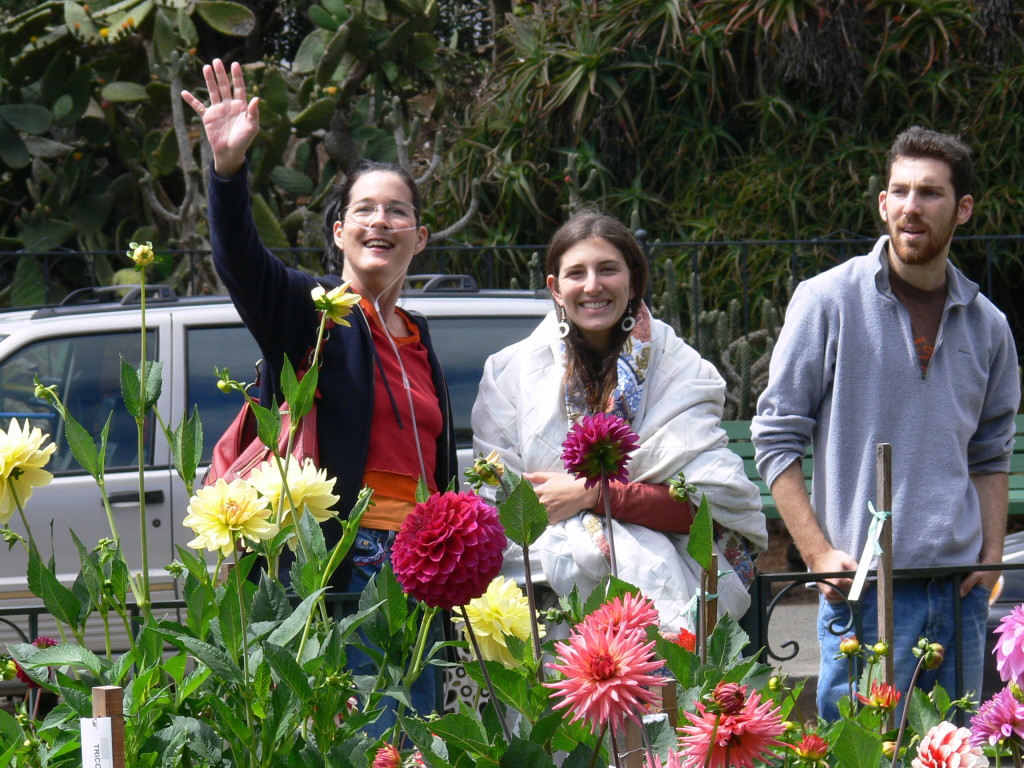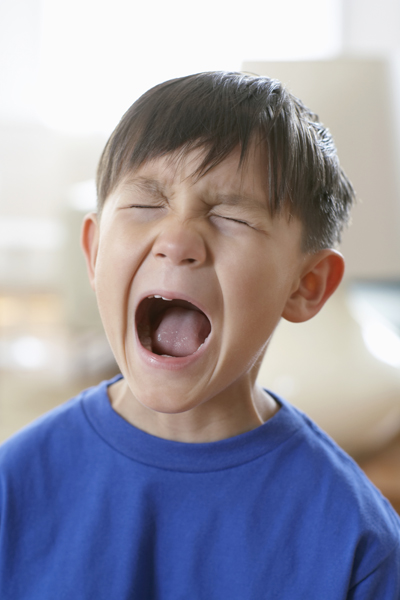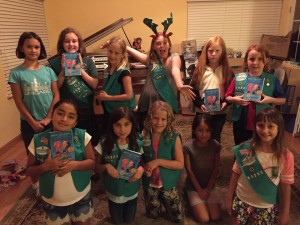|
|
December 8, 2015
I’m head-down focused on my teen novel. Come first of the year, El Niño or no, it’s going to my editor. Who cares if I’m sitting on a coach adrift in dog hair? Or wearing the same socks five days running? It’s Food Truck Tuesday and I’m in the zone. And like yesterday’s Chinese leftovers, I’m serving up reheated holiday blog fare today. Tuck in!
 It’s dark out there. Spread your light T’is the season for spreading light in the darkness. And goodwill. Yeah. So why not go out of your way to be nice? Or, at the very least, watch out for missteps. Some can’t be undone. Like when we make choices that negatively alter the course of a relationship.
Fortunately some missteps can be corrected before we royally muck things up. I got one of those the other day as David and I walked to the post office. We passed a neighbor wearing a thin blue dress, bedroom slippers and an agitated expression. She shouted something at us, but with the guy across the street running his leaf blower I couldn’t make out what she said.
This woman is… how can I put this? A bit erratic. Over the years I’ve seen her standing in front of her house screaming at cars (“SLOW DOWN!!”) and at me (“DID YOU SEE THAT GUY? JUST LETS THE DOG RUN AROUND! NO LEASH! NO SENSE!”) Because I never know what I’ll get from her I keep my distance. At that leaf-blowing moment I could easily have pantomimed: Sorry, crazy lady, can’t hear you! I’ll just shrug, smile, wave and keep walking…fast.
But that felt like a misstep. And I had the weird sensation a campus rep from Karma College was taking notes… so I crossed the street and talked to her.
LADY: Did you see the mailman up the street? Has he come down the hill yet?
ANNIE: I didn’t see him, but we already got our mail.
LADY: So did I. But I wonder if he’s passed by yet.
ANNIE: Yeah. I think he’s gone for the day.
She stood there, frowning. The wind picked up and her feet went bluish in those flimsy slippers.
ANNIE: Was there something you wanted to mail? Because we’re walking to the post office right now.
She ran into the house while I imagined her coming back with a twenty-five pound box and a handful of stamps. I thought about leaving. A moment later she re-appeared waving a white envelope… Christmas card size.
LADY: It’s for a man in a nursing home. You’ll take it to the post office for me?
Sure thing.
Misstep unstepped. Right foot forward.

November 17, 2015
Terrorism. Roast turkey with stuffing. Refugees. Sweet potatoes with marshmallows. Fear. Trust. Violence. Kindness. We need Thanksgiving more than ever. But who gets the invite and who doesn’t?
 Hello, dear friend. You are welcome. A few years back, my dear friend Bettina was having health issues and emailed: “I know this is incredibly presumptuous and Miss Manners would be scandalized, but I’m wrangling for an invitation for Thanksgiving.” (Yes, she actually wrote that.)
I couldn’t believe she assumed she’d crossed the line by saying, “I’m not feeling well and I don’t want to be alone. Can I come over?” I called immediately and gave her top marks for asking for what she needed. She was relieved knowing she’d done the right thing by speaking up.
Most of us are quicker to stand up for others than for ourselves. On some level we must believe it’s a sign of weakness to ask for support. But where does that foolishness come from? Not long ago I asked a bunch of 6th-8th graders to rate themselves on two statements: “It’s easy for me to ask for help” and “I lie and pretend things are OK when they aren’t.” The results? Twenty-five percent of the kids said it was “never or almost never” easy to ask for help. Another 25 percent reported that “sometimes” they had trouble asking for help. Another sad finding: A whopping 83 percent admitted that “sometimes, always, or almost always” they fudge the truth and pretend things are OK when they aren’t.
An inability to ask for help, coupled with a habit of pretending things are fine when they’re not, is unhealthy. When we deny our human need to connect heart-to-heart we short-change ourselves and the people who love us.
Teaching kids to be good people includes helping them get comfortable asking for support. Sure, self-reliance is essential, so is resilience and learning to calm yourself when stressed. But inner resources aside, we all feel vulnerable at times. We are also interdependent. When we let people know how we feel and allow them to love us and help us, we honor our humanity. We do the same when we welcome others to our table, our classroom, our community.
When Bettina reached out to me, I was filled with love for her. I wanted to help, but our family was heading out of town for Thanksgiving. With my encouragement she confidently expressed her needs to another friend who gladly opened his heart and home. What would surely have been a sad and lonely day for her turned into a wonderful experience of friendship and a sense of belonging.
Less than two years later Bettina died. I’m comforted knowing she wasn’t alone that Thanksgiving. I admired her courage in reaching out and asking for what she needed. She taught me a powerful lesson: When it comes to friends and family, hold nothing back. Allow yourself to love and be loved fully, without limits.
Happy Holidays, from our family to yours.
 Peace

November 12, 2015
 I’m so MAD I could… ! From the moment we learn a baby is coming we begin a life-long journey to understand this new person. At first it’s a clear-cut mission. I am key to my child’s survival. I must understand what the child needs and provide it. Sure there may have been lovers who proclaimed, “You are my life.” “I’d be lost without.” “I would die without you.” That is fantasy. But our baby’s need for us doesn’t get any realer. Without our love and protection… the child would die.
As kids grow they learn to take care of their own physical needs. Feeding. Toileting. Bathing. And they learn to decode the world by exploring its textures, tastes and sounds.
How about learning to take care of their emotional needs? Little children have big emotions. Tweens and teens often experience off-the-chart emotions. We parents need to hang in there, continually trying to understand what’s going on. We often do it by asking:
How do you feel?
What scared you?
Why are you crying?
This line of questioning helps kids tune in to their emotions and learn about what sets them off.
She was mean to me!
He hurt my feelings!
These conversations are important and helpful, but that’s not the end of the story. If we make it the end kids can get stuck believing: My feelings are most important of all. That mindset just isn’t very helpful for raising kind, respectful and socially courageous kids who do the right thing, online and off.
After your children have talked about their emotions and had a chance to calm down, it’s time for the rest of the story. Ask: “What can you do about this situation? What would be helpful? What would not be helpful?”
Encourage your children to explore their options, aka their next best move because, even though our feelings matter, ultimately, our behavior matters more.
So… how do you feel about that perspective? What do you think about? And what are you going to do with it?
I look forward to hearing from you.

November 7, 2015
 We’ve got the tools and we’re brave enough to use ’em! Last month I began partnering with the Girl Scouts of Northern California by presenting my Girls Friendship without the Drama Workshops. In the first hour I teach girls to navigate all kinds of sticky peer conflicts while the moms (and the few cool dads who’ve shown up) sit back, listen and observe. During the second hour the girls skedaddle into another room where they engage in more (supervised) friendship-building skills while the parents and I circle the wagons and get to the heart of what girls need from those of us who love them.
To date I’ve done nine of these workshops with another seven scheduled. Girls can’t wait to start using what they’ve learned. Moms are reminded how painful it can be feel “replaced” by a friend. Dads are stunned at how hard it is for girls to tell a friend, “Stop. I don’t like that.” Parents are thrilled to have new insight, language, and context to help their daughters do a better job navigating friendships.
Here are some tips to help you help your daughters and sons resolve the inevitable issues that come up between our kids and their peers.
Dealing with Friendship Challenges
- Calm Down. No matter what awful thing some child has done to your daughter or son, calming down first makes it easier to get through the upset. So take some slow deep breaths and encourage your child to do the same.
- Show that you get it. Acknowledge that it hurts when a friend turns against you. Reflect back what you hear, “You sound really hurt, angry, and confused.” Share one of your own “hurt by a friend” stories. Share what you learned and how you used it to become a more thoughtful person and a better friend. This models empathy and reassures your child that (s)he will survive.
- What Can/Can’t You Control? Tell your child, “You can’t control a friend’s behavior or feelings, but you can get a handle on your own.” When we try to control things we can’t control, it stresses us out and makes us feel powerless. Don’t let your kid go there!
- You’ve got options! Even after a blow-up with a bff, your child is far from powerless. She always has options. For example, your child might:
- Never talk to that friend again
- Get back at her by spreading gossip
- Suppress the hurt and act like it didn’t bother you
- Find new friends
Brainstorming should be open-ended. Encourage your child to freely explore ideas without your judging them. They’re just ideas and this is a clearing process. Even the worst, knee-jerk options offer great (and totally safe) learning opportunities. In addition, you’ll give your child a gift by talking about all of this. When s/he doesn’t have to worry about your rushing in to “fix” the problem, your child’s thinking process will be accelerated. Hopefully, she’ll move closer to the time when she no longer accepts disrespectful behavior from anyone, including herself!
At the end of the process your child may decide to take a vacation from the drama or to find the EXIT out of the friendship. That’s her choice. But just because she’s finished, doesn’t mean she has the right to make life unhappy for an ex-friend. I put it is this way: You have the right to choose your friends, but it’s NEVER okay to be cruel or disrespectful. Keep your distance if you choose, but always treat others the way you want to be treated. Old rule. Still applies.
 — Older Posts »
| |















